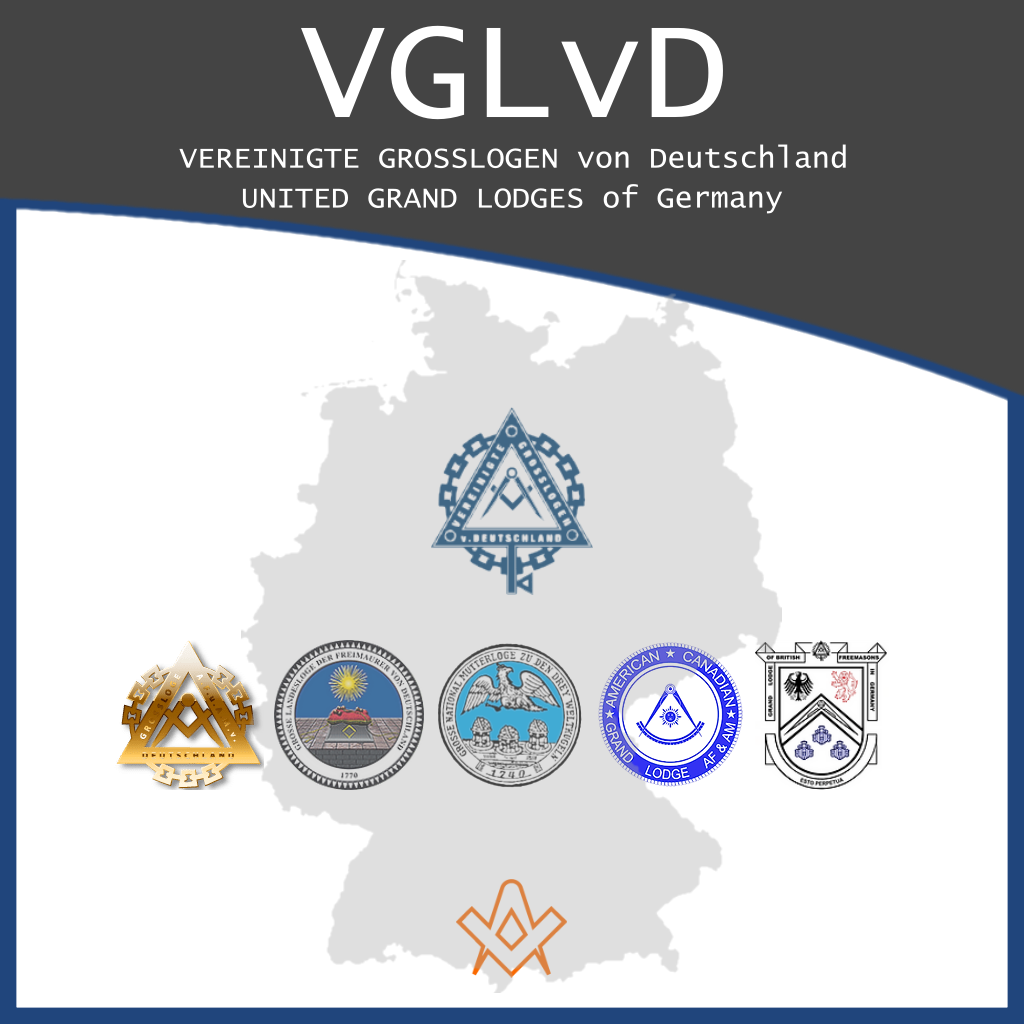An introduction to the VEREINIGTE GROSSLOGEN von Deutschland / UNITED GRAND LODGES of Germany
Freemasonry set foot in Germany in 1737, in a piece of land that we now understand as a patchwork pattern of individual states, which is the reason why masonic organisations in Germany developed individually.
Three Grand Lodges were founded in the biggest part of Germany, Prussia. They were later called the old-Prussian Grand Lodges:
Die Grand National Mother Lodge ‘The Three Globes’ (founded 1740, the first Grand Lodge and still exists today), the Grand Land Lodge of the Freemasons of Germany (founded 1770) and the Lodge Royal York of the Friendship.
After 1893 other German Grand Lodges started founding own lodges in Prussia, for example the Grand Lodge of Hamburg. The Grand Land Lodge of Saxony arose in Saxony.
The Bavarian Grand Lodge in Bayreuth was called Grand Lodge ‘To the Sun’.
The idea of merging all German Grand Lodges came up as early as 1800. In the year 1877 the term ‘United Grand Lodges of Germany’ emerged – ‘Vereinigte Großlogen von Deutschland’ in German.
500 Lodges in Germany
Still, in the nineteenth century, all endeavours of agreement failed due to traditional particularism. After 1933, German Freemasonry, which was divided into ten independent Grand Lodges, was destroyed.
After the war ended in 1945, some masonic lodges were able to rebuild themselves – only in Berlin and Western Germany.
In the zones occupied by the Soviet Union and later in the GDR a revival of Freemasonry was impossible.
On June 19, 1949 in Western Germany, the 174 lodges organised under the German Grand Lodges were unified to form the ‘United Grand Lodge of Freemasons in Germany’ (today called the Grand Lodge of Ancient Free and Accepted Masons in Germany).
The Grand Land Lodge of the Freemasons of Germany and the Grand National Mother Lodge ‘The Three Globes’ continued in their old traditions.
It took years of constant efforts and the help of several foreign lodges, i.e. The United Grand Lodge of England, to find the agreement that marked the foundation of the VGLvD on April 27, 1958.
It was the beginning of a construction unique to Freemasonry; unique in the sense that all of the five Grand Lodges who signed the agreement only had to renounce two of their sovereignty rights: the representation of all German Freemasons in foreign masonic organisations and towards the profane world.
The Great National Mother Lodge ‘The Three Globes’ and the Provincial Grand Lodges of the British and American-Canadian Freemasons joined the agreement in 1970 as independent Grand Lodges.
The new national order of Freemasonry in German soon gained recognition of most foreign Grand Lodges.
Today they are in a mutual relationship of acknowledgement with around 180 Grand Lodges all over the world.
The United Grand Lodges of Germany were able to significantly contribute to the development of Freemasonry in Eastern Europe.
In the year 1997 today’s United Grand Lodge of Bulgaria (VGLvBG) was founded, followed by the Grand Lodges Ancient Free and Accepted Masons in Lithuania in 2002 and Latvia in 2003, all with the help of the VGLvD.
Additionally, there were the new foundations in Lithuania, Serbia (RGLvSRB – former GLvYugoslawia), Montenegro (in cooperation with the Grand Lodge of Austria GLvÖ, the Great Orient of Italy GOI and the Grand Lodge of Serbia RGLvSRB) as well as in Slovakia (in cooperation with the GLvCR and GLvÖ) and the regular national Grand Lodge of Monaco (in cooperation with the UGLoE and the GNLF in 2010).
All grand lodges of German Freemasonry
There are more than 16,500 German Freemasons organized in five grand lodges. In total, there are around 500 regional St. John’s lodges among these five grand lodges.
Here you will find links and contact options for the five member grand lodges of the VGLvD.

Grand Lodge of the Old Free and Accepted Masons of Germany, with almost 10,000 members, is the German grand lodge with the largest number of members.
Its members stand in the tradition of humanism and the Enlightenment and are committed to human dignity, freedom and self-determination.
It unites spiritually and humanly open-minded men of different ideological, religious and political convictions.
It is important to understand the Freemasons’ Union as a unity of fundamental idea, unifying community and symbolic expressiveness; this is what makes it special compared to all other associations with related objectives.
Old Free and Accepted Masons of Germany (GL AFuAMvD)
source: freimaurerei.de (Translastion)

Great State Lodge of Freemasons of Germany eV – Freemason Order, founded in 1770.
In today’s time, when there is a certain lack of prospects, in which the question of particular values is gaining in importance, Freemasonry, with its content, can offer orientation and direction.
The way and destination are best described as follows: “Freemasonry makes a good person even better.”
Dealing with the Freemasonry of our type of teaching, dealing with its content in relation to oneself, gives us many starting points and opportunities to assess, question and change our own behaviour.
Despite this reference to oneself, a Freemason wants to be open to the worries and needs of others.
Not putting your own advantages in the foreground, but seeing the common whole and yourself as part of it is a way of acting that we practice and cultivate in our brotherhood with the help of rituals and symbols.
Our teaching goal is the continuous work on ourselves, the application of symbolism to our own life, it is a striving for “light and truth”.
Grand State Lodge of the Freemasons of Germany / Order of Freemasons (GLLFvD / FO)
source: freimaurerorden.de (Translation)

The Great National Mother Lodge “To the Three Worlds”
At the behest of Frederick the Great, shortly after his accession to the throne, the Great National Mother Lodge “To the Three Worlds” was founded.
In a greeting to the 250th anniversary of the Grand National Mother Lodge, Dr. Louis Ferdinand von Hohenzollern that Frederick the Great added freedom of conscience, freedom of thought and benevolence – being human – to the principles of tolerance.
These concepts still form the foundation of Freemasonry today; they are freemasonry par excellence.
You are the force that carries the idea of Freemasonry into the world and lets the brotherhood work unswervingly on the “temple of humanity”, without religious, social and ideological constraints.
It is the reasons that make men work on themselves, for and in society.
It is the terms that make our covenant in its diversity alive and worth living in at this time.
Great National Mother Lodge “To the Three Worlds” (GNML 3WK)
source: 3wk.online

American Canadian Grand Lodge
As a fraternal organization, Freemasonry unites men of good character who, though of different religious, ethnic or social backgrounds, believe in the brotherhood of mankind under the fatherhood of God.
In the present time, in which a certain lack of perspective prevails, Freemasonry offers the path and goal which is aptly described thus: “Freemasonry makes a good person better.”
In the tradition of enlightenment and humanism, we men of different religious, political and ideological convictions – want to make an attempt to make the world and the society in which we live a more humane and better one.
Freemasonry is the world’s oldest and largest Fraternity. Its history and tradition date to antiquity. Its singular purpose is to make good men better.
Its bonds of friendship, compassion and brotherly love have survived even the most divisive political, military and religious conflicts through the centuries.
Freemasonry is neither a forum nor a place for worship. Instead, it is a friend of all religions which are based on the belief in one God.
Freemasons are respectable citizens who are taught to conform to the moral laws of society and to abide by the laws of the government under which they live.
They are men of charity and good works. They remain unchallenged as “the world’s greatest philanthropy!”
American Canadian Grand Lodge (ACGL)
source: pub.acgl.eu (English)

The Grand Lodge of British Freemasons in Germany
British Freemasons have been in Germany for more than 50 years.
The first lodge, New Absalom Lodge was established as long ago as 30th March 1957 in Düsseldorf. This Lodge was consecrated as part of the United Grand Lodges of Germany but soon afterward “A Provincial Grand Lodge of British Freemasons in Germany” was founded.
In 1980, the current Grand Lodge of British Freemasons in Germany (GLBFG) was created.
Members are all proud to be German Masons and the GLBFG is part of the wider United Grand Lodges of Germany.
Although they are German Masons, they are a truly International Grand Lodge and have members from all four corners of the globe making up our ranks.
Currently, 18 Lodges within the Grand Lodge located all over Germany – from Hamburg in the North, Berlin in the East, Düsseldorf in the West and Munich in the South.
The main concentration of Lodges is North West Germany as a consequence of the British Forces presence in post-war Germany.
Grand Lodge of British Freemasons in Germany (GL BFG)
source: gl-bfg.org
New Grand Master of the United Grand Lodges of Germany

Michael Volkwein
On 20th November 2021, at the electoral convention of the United Grand Lodges in Berlin, Michael Volkwein was elected as the new Grand Master of the United Grand Lodges of Germany.
The United Grand Lodge of England (UGLE) traditionally recognizes only one grand lodge per country . In Germany, however, there were several grand lodges that have come together to form an umbrella organization, the United Grand Lodges of Germany, and thus enjoy international recognition.
This is a special status, the importance of which the new Grand Master particularly pointed out in his introduction. He explained that “in international comparison, German Freemasonry has a unique form of organization that guarantees Masonic unity in diversity” and further pointed to the diversity of rituals, diversity of sensations and diversity of knowledge.
Michael Volkwein, born in 1961, married, insurance broker and restaurateur, is a member of the Kassel lodge “Goethe zur Bruderliebe “, of which he was master of the chair from 2011 to 2015. From 2018 to 2021 he was District Master of the District of Hesse / Thuringia and has been a member of the Senate of the United Grand Lodges of Germany since 2016.
He attaches great importance to Masonic research. He also wants to campaign for Masonic art in all its forms, for example the artists’ association “Pegasus”, but also the abundance of artists of all branches who, as brothers, draw important inspiration from Freemasonry.
The discourse on the future of Freemasonry, which he would like to lead together with the grandmasters of the five connected grand lodges, is particularly close to his heart.
Times change. What does not change are our brand core, our recognized traditions, our customs, our values and principles. The ‘opening of Freemasonry’ is discussed again and again.
This is then named as one of the essential topics for public relations. Yes, I am in favor of an objective public display of Freemasonry. Yes, we have to get out of the corner of conspiracy theories.
But opening cannot mean private. to make the downright intimate atmosphere of a temple work public. We have to keep this personal Masonic core to ourselves.
Michael Volkwein sees future issues, public relations, new media, transparency and information as important tasks that he wants to discuss with the German recognized grand lodges, but also with the women’s grand lodge.
In doing so, he attaches importance to the statement that the sovereignty of the member grand lodges laid down in the Magna Charta should not be affected.
Source: freimaurerei.de
Contact Details
UNITED GRAND LODGES of Germany
Brotherhood of Freemasons eV
Peter-Lenné-Strasse 1-3
14195 Berlin
Germany
email: gma.vglvd@freimaurer.org
Tel .: +49 30 861 14 796
Fax: +49 30 862 11 64
Text and Image Source: https://freimaurer.org
Recent Articles: of current interest
 Keeping Passions and Prejudices within Due Bounds Master your emotions and find balance in a chaotic world with Darren Allatt's "Keeping Passions and Prejudices within Due Bounds." Discover practical strategies for self-awareness, emotional intelligence, and building meaningful relationships. Transform your life with calmness, clarity, and purpose. Start your journey towards emotional mastery today. |
 Masonry in the Age of Leisure - P2 Explore the optimistic future of Masonry in "Masonry in the Age of Leisure" by VVenBro Scott Wisdahl. Delve into the possibilities of a leisure-driven society where technology enhances social bonds, decentralizes the Craft, and reshapes Masonic traditions. Discover how Masonry can thrive in an interconnected, tech-savvy world. |
 Masonry in the Age of Leisure - P1 Embrace the future of Masonry in the Age of Leisure! Imagine an era where technology empowers deeper connections, offering a tapestry of diverse groups united by Freemasonry’s timeless values. Envision hybrid meetings transcending borders, fostering brotherhood across continents. This optimistic future cultivates intellectual growth and social interaction, heralding a Masonic renaissance for all. |
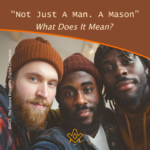 “Not Just A Man. A Mason”: What Does It Mean? Embrace the profound essence of Freemasonry, not merely a group but a journey of integrity, shaping men of dignity. By adopting virtues such as honesty, justice, and brotherly love, Freemasonry transcends time, urging us towards a dignified life. It’s more than being a man; it’s about living with unyielding dignity. |
 Multiculturism and the Culture of Freemasonry Freemasonry, with its deep roots in universal principles such as individual freedoms, education, and the pursuit of science, stands as a beacon of unity in a world divided by conflicting ideologies. By embracing the tenets of Freemasonry, including respect, peace, and mutual understanding, we can navigate societal challenges and foster a more harmonious world. |
 Embrace the new paradigm of eco-conscious living in the 21st century. Freemasonry, a cornerstone of society, must evolve, placing Nature at its heart. Reject anthropocentrism, embrace deep ecology, and champion sustainable living and global cooperation. Let Freemasonry lead by example, advocating for a world where humans and nature coexist harmoniously. |
 How Freemasonry Has Woven Itself into the Fabric of Society Like the weathered stones of an ancient temple, Freemasonry's origins are shrouded in mystery. This fraternal order has woven invisible threads throughout society's fabric since emerging in the 1600s. Despite declining membership, Freemasonry's influential legacy endures, seen in philanthropy, architecture, and the ideals of legendary members. Though facing challenges, revival remains possible if it adapts traditions to the modern era. |
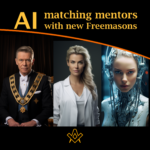 AI help in matching mentors with new Freemasons Harnessing AI for Freemasonry Mentorship: A Comparative Analysis. Freemasonry, an age-old fraternity, seeks to enhance its mentorship program by leveraging AI. While the Grand Master suggests detailed member profiles for matching, a Professional Coach emphasizes personality compatibility. Meanwhile, an AI Bot proposes machine learning for pattern recognition. Dive in to explore the potential and pitfalls of each approach. |
 Masonic Charities P.2 – The Shriners Discover the Shriners' legacy within Freemasonry; delve into their profound commitment to philanthropy and see how Masonic Charities demonstrate brotherly love, relief, and truth. Become inspired by the bonds that unite Shriners around the globe and their impactful work in local communities. |
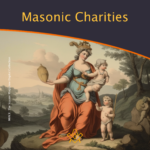 Freemasonry's commitment to charity has always been a priority and remains a core principle, reflecting its mission to promote brotherly love, relief, and truth in the world. Part 1 of the series gives an introduction to the establishment of the main Masonic Charitable endeavours in the 18th and 19th centuries and several key influencers. |
 Solomon Learning and Development Platform The Intersection of Freemasonry and Technology: Embracing the Digital Age with the New |
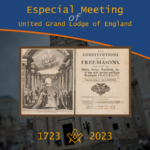 Especial Meeting of United Grand Lodge of England The year 2023 marks the tercentenary of the publication in London of the Constitutions of the Freemasons, based on Enlightenment principles that provide the philosophical foundations of modern Freemasonry. Why are the 1723 Constitutions important? Many Masonic histories have been concerned with ‘when’ and ‘what’. We also explore ‘why?’ |
 Like every other incident of initiation it is in the light of the larger meanings of Freemasonry that we must interpret the Rite of Destitution. But what does it mean? |
 Society of Grand Lodges in Alliance (SOGLIA) is a confederation of Grand Freemason Obediences in which all members obey the principles of Regularity. Assembled annually, in different places of the world, in order to share fellowship and to promote Masonic tradition, SOGLIA members are respecting the autonomy of each Grand Lodge. |
 Confederation of the Grand Lodges of Europe and the Mediterranean - Universal Freemasonry and its intellectual property are less and less taken into account in the current times of constant movement and unclear future prospects. |
 The Book of Law in Brazilian Freemasonry We are informed that, Freemasonry it is not a religion, but the candidate has a belief in a creative principle, which later, we call the Great Architect of the Universe. - by Fernando Rodrigues de Souza |
 Mike's Masonic Walks And Talks WBro. Mike Neville is a Masonic author and lecturer. He offers walks and talks primarily around London, based on his vast knowledge of the area and his specialist subjects, which cover all aspects of Masonic history. |
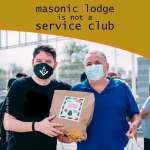 A Masonic lodge is not a service club An address delivered to the 10th Annual Conference of Western Canadian Grand Lodges (1950) in response to the question, "Should Our Western Grand Lodges Sponsor a Specific Program?" By |
 The Order of Bees was established as a youth initiative for the boys and girls of Prince Hall Freemasons, and symbolises the relationship existing between the activities of the youth and the family of bees. |
 The Confederación Masónica Interamericana (CMI) was founded in 1947, is a non-profit organization that groups together 92 Great Masonic Powers, admitted as members and distributed in 26 countries in South, Central, North, Caribbean and Europe. |
 This smartphone app is designed to work with all Freemasons from both Regular and Independent Grand Lodges around the world. |
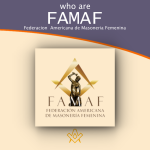 The American Federation of Feminine Freemasonry (FAMAF) is an organization that brings together Grand Lodges, Grand Orients and Confederations of Feminine Masonic Grand Lodges from the American continent. |
 The third largest Masonic Alliance of independent grand lodges, which currently has over 500,000 members in the world and an incredible resource of "good people with a good reputation" from around the world. |
 A Guiding Paw - my faithful 'brethren' A heart-warming story of one Mason's best friends – and how Gary's faithful guide dogs have helped fulfil both his Masonic life but also his valuable work in public service. |
 A visit to the Mother Lodge of Scotland Let me take you to the heart of Scotland to meet our Brethren of the Mother Lodge of Scotland, a journey into one of Freemasonry's deepest roots. Our guide Carlos Oliveira Santos who is from |
 An introduction to VEREINIGTE GROSSLOGEN von Deutschland / UNITED GRAND LODGES of Germany |
 International Masonic Union CATENA An international association of Grand Lodges and independent Lodges, with all true Masonic traditions, which adhere to the basic principles of the equal standing of men and women in Freemasonry |
 Social Impact of Prince Hall Freemasonry in D.C., 1825-1900. Alonza Tehuti Evans discusses Prince Hall Freemasonry, founded by African Americans. |
 Who are the Widows Sons, and what do they do, and how can you join ? |
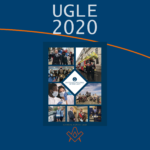 For the first time in its 300 year history UGLE has published an Annual Review |
 Founded in 1919 and named after the Grand Master of the Knights Templar, this International Order has helped young boys become great men. |
 9th International Conference of Freemasonry Hidden Meanings: Esotericism and Masonic Connections |
 An introduction to CLIPSAS and we look at who are they and what do they do |
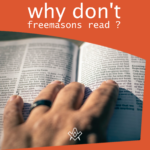 The title of this article will seem somewhat of an oxymoron, because at this precise moment you, most likely a Freemason, is reading this |
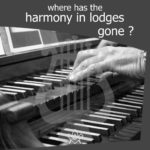 Music can make you either remember everything or forget everything! They even call it the 'rhythm' of life because life does have a beat, a rhythm, a song! Music is equally important for Freemasons. |
 Young Masons' Inter-Club Virtual Social An initiative was created to initially keep Brethren engaged in their Masonry whilst the restrictions of the COVID-19 pandemic are in place. |
 I've heard people say that we don't have heroes |
 What can we learn from Steve Jobs' address given at Stanford in 2005 |
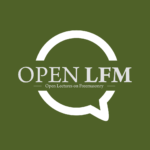 Open Lectures on Freemasonry as a series of monthly online lectures that aims to increase the visibility and accessibility of research into Freemasonry. The lectures are open to anyone who is interested. |
 What Kind of Library Do You Have? Many Brothers have no clue as to what kind of "Craft" library they actually have in their home or office. Most of these Brothers don’t care that they don't know – so, what kind of library do you have? |
 Russian Freemasonry a combination of a short sketch of its history and a review of the present-day Masonic landscape in this country |
 A brief outline showing the differences and similarities within Freemasonry |
masonic knowledge
to be a better citizen of the world
share the square with two brothers

click image to open email app on mobile device



